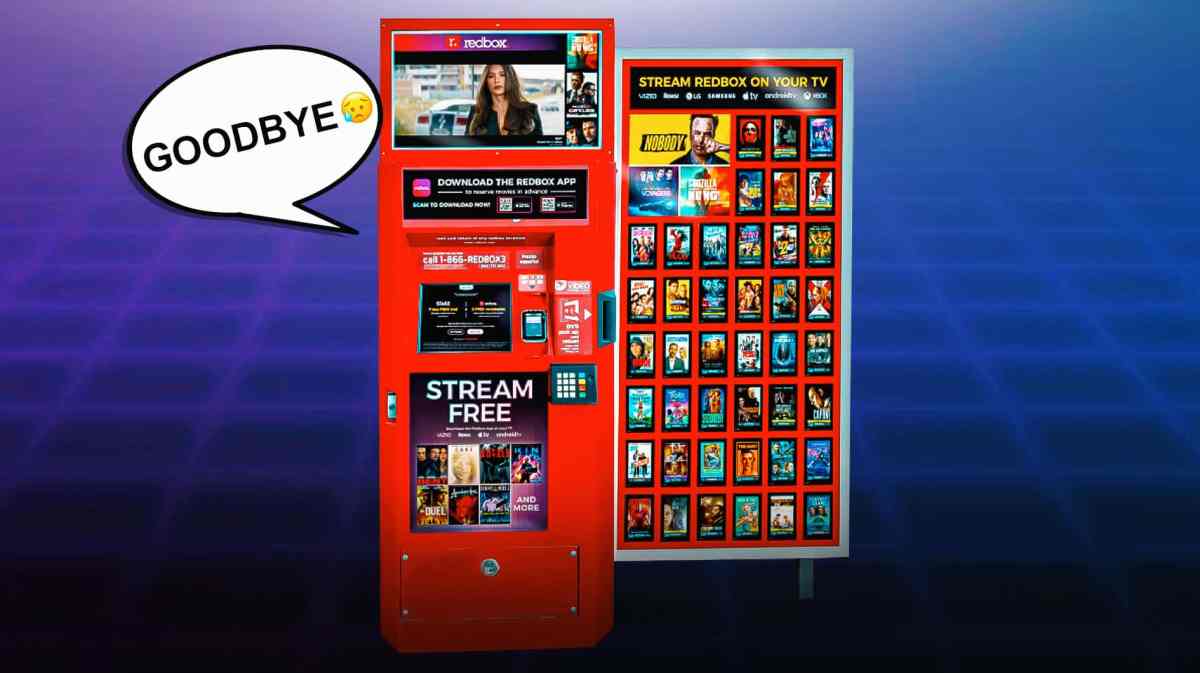Despite some directors' insistence that physical media isn't dead, Redbox shutting down belies that decree, Variety reported.
After more than 20 years of the company's once ubiquitous red box kiosks — 24,000 — for DVD rentals in the US, Redbox and its streaming services will be shut down. Its parent company, Chicken Soup for the Soul Entertainment has converted its Chapter 11 bankruptcy filing into a Chapter 7 liquidation on Wednesday.
This means that the company's employees have been rendered unemployed and will not be receiving severance or extended benefits. Chicken Soup for the Soul Entertainment had 1,033 employees as of late June.
Goodbye, Redbox
Even before Chicken Soup for the Soul Entertainment bought Redbox in 2020, its business has been in a steady decline for the better part of a decade. In 2013, its revenue reached $1.97 billion. The chain once had 43,000 kiosks in both the US and Canada, filled to the brim with films, TV shows and games.
CSSE filed for Chapter 11 reorganization on June 28, with its debts of $970 million and consolidated assets of $414 million as of March 31, 2024. Its creditors include Universal Studios Home Entertainment, Sony Pictures Home Entertainment, Warner Bros. Home Entertainment, Paramount Pictures, Lionsgate, BBC Studios Americas, Walgreens, Walmart and Vizio.
The US Bankruptcy Court for the District of Delaware Judge Thomas M. Horan, who is overseeing CSSE's Chapter 11 bankruptcy case, granted the company's request to change this to a Chapter 7 liquidation on Wednesday.
According to The Wall Street Journal, Horan said, “There is no means to continue to pay employees, to pay any bills. 1,000 people are about to lose their jobs and they're not even going to be paid for work that they did.”
Chicken Soup for the Soul Entertainment had stopped paying employees and vendors for at least four weeks before the Chapter 11 filing. According to court documents, the company's top lender HPS, claimed that the company was grossly mismanaged.
The company's chairman and CEO Bill Rouhana Jr. claimed that the company's financial problems were partly due to its lenders' “refusals to live up to their obligations, resulting in asserted defaults and/or contractual terminations across critical content and service providers.” He then unilaterally dismissed Chicken Soup for the Soul Entertainment's board of directors on June 11. Following that, Rouhana officially stepped down from his post on June 24.
Blame it on COVID
Chicken Soup for the Soul Entertainment acquisition of Redbox in 2020 was valued at $370 million. With the acquisition, CSSE also assumed Redbox's debt of $359.9 million.
In his declaration to support the bankruptcy claim, Rouhana said that the company's ability to pay off the debt was “predicated on a partial return to pre-COVID levels in the number and cadence of theatrical releases that were available to the company for its kiosk network, as well as cost synergies. The corresponding rebound in demand for physical kiosk rentals was expected to return to approximately one-third of 2019 levels.”
Redbox was initially developed as part of McDonald's Project 361, a business expansion initiative. It was originally meant to sell fresh dairy and other products. In late 2003, McDonald's ceased using the kiosks for these productions and an executive turned the kiosks for DVD rentals the next year.
Redbox kiosks were self-service which combined interactive touch screens and signs. Inside the kiosks was a robotic disc array system which had a stacked carousel of DVDs as well as web-linked electronic communications. The kiosks typically hold over 600 DVDs and were updated weekly. The customer can pay with either a credit or debit card. The borrowed DVDs can be returned the next day to any kiosk.
While the shuttering of Redbox seems like another nail in the coffin of physical media, I'm surprised that it was able to hold out for this long. Blockbuster, its erstwhile competitor, filed for bankruptcy in 2013 and closed most of its stores the next year.
In fact, there's only one remaining Blockbuster store in the US. It's located in Bend, Oregon. In 2018, it became the last store of the now-defunct video rental company. Two years later, it became the world's last remaining retail story still using the Blockbuster brand.

















